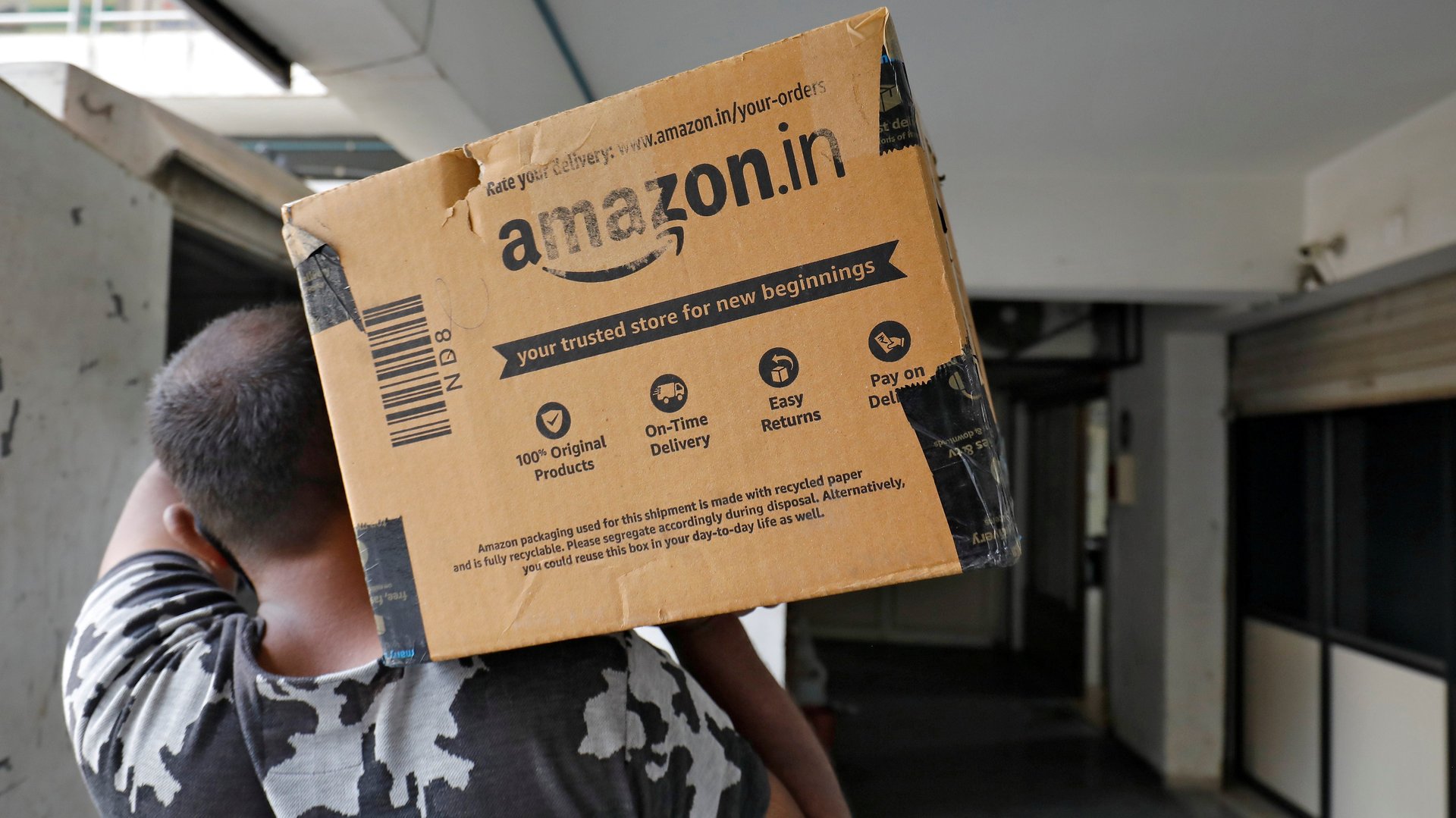Covid-19 hasn’t dampened the festive spirit for Indian e-commerce
India’s jobseekers are in for a festive season bonanza.


India’s jobseekers are in for a festive season bonanza.
Recruiters expect between 300,000 and 500,000 seasonal jobs will be created as demand for temporary staff surges 35% compared to last year. The two biggest e-commerce firms, Amazon and Flipkart, are creating over 100,000 jobs each in the coming months. After all, this year’s festive sales are poised to be the biggest ever because of pent-up demand and rising consumer confidence in online shopping.
India’s recovery continues
The $50 billion e-commerce industry is not only creating direct employment by hiring tens of thousands workers as pickers, packers, sorters, and delivery personnel at e-commerce hubs, but also facilitating indirect employment at seller partner locations and kirana stores that serve as last-mile delivery partners.
There will also be additional hiring in ancillary sectors like logistics, warehousing, technology, and support services, as companies expand and optimize supply chains, experts say.
“The pandemic and its aftermath have served to transform the logistics sector from a supporting service sector into an essential one,” said Ajoy Thomas, business head of retail, e-commerce, logistics, and transportation at HR firm TeamLease. “Higher penetration and more acceptance for online shopping across metro cities, tier-two locations, and towns are expected to continue pushing the growth.”
Where are India’s gig workers?
India’s brutal second Covid-19 wave meant that migrant workers once again fled urban centers—like they had during the first wave—leaving several companies short-staffed.
However, cases have come down in most parts of the country and economic activity is on the mend. More than 700 million doses of the vaccine have been administered. As a result, labor has once again made its way back to the cities, experts say.
Moreover, Covid-19 restrictions have been eased by the government to a large extent, “allowing flexibility and ease of operations” as well as contributing to “better planning and execution of order fulfillment,” says Saahil Goel, CEO and co-founder of logistics software firm Shiprocket.
Additionally, jobseekers from other industries have turned to the gig economy to earn a living. “E-commerce companies will provide tremendous opportunities for people working in sectors like hospitality and travel, which have been badly impacted by Covid,” says Naveen Malpani, partner at advisory firm Grant Thornton Bharat.
Covid-19 safety measures
However, companies are acutely aware that the fear of a third wave is still looming. To mitigate risks, most facilities are checking employees’ temperatures, providing free masks and hand sanitizers, and maintaining social distancing.
“Companies are preparing themselves in every way possible as it’s expected that the third wave is expected to be more severe than the second wave,” said Sankar Bora, founder and chief operating officer of social commerce platform DealShare. Like most other e-commerce firms, Bora’s Jaipur-based company is conducting vaccine awareness programs and offering paid vaccination leave for workers—permanent and seasonal.
Flipkart offers a gamut of medical assistance to employees, which it will extend to temporary workers, the company told Quartz. These include free doctor consultations, support for hospitalization, subsidized medicines, an option of two months’ salary advance to meet emergency needs, and an instant credit which is 70% of the employees’ monthly salary, among other things.
Beyond healthcare, several firms are also giving “additional incentives like minimum guarantee on work and accommodation to cultivate a better relationship with temporary staff,” said Grant Thornton’s Malpani.